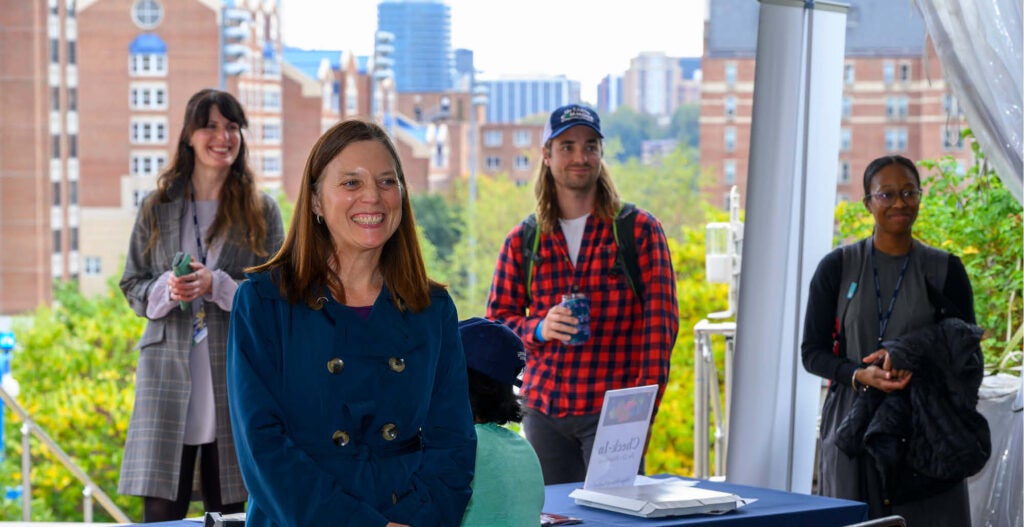External Opportunities
A continuously updated list of external research funding and green job opportunities geared towards students, faculty, and other members of the Earth Commons network.
Last updated June 7th 2024
Research Funding
Events & Programs
Green Jobs
Want more opportunities?
The following are jobs and internships shared with our institute. For a more complete listing of internships and post-graduate opportunities, please visit Handshake.
- National Oceanic and Atmospheric Administration (NOAA)
- Various positions are constantly posted.
- Look at USAjobs.gov for updated information.
- Department of Energy’s Clean Energy Corps
- DOE is collecting resumes for candidates interested in becoming part of the Clean Energy Corps via their applicant portal and USAJOBS
- Staff positions are available across the country in a number of disciplines
- Find more info here
- Casey Trees
- This DC-based nonprofit continuously hires for various roles throughout the year.
- They are committed to restoring, enhancing, and protecting the tree canopy of the nation’s capital
- Visit Casey Trees’ jobs page to find open positions
- Green Corps Organizer Program – The Field School for Environmental Organizing
- This program is accepting 20 college graduates. In the year-long program, participants will first learn through their paid training program before joining campaigns to get hands-on experience. Find more info here
- Directly contact field organizer Kendyl Smith with questions (260-906-6473 or kendyl@greencorps.org)
- The Big Bets Climate Fellowship with the Rockefeller Foundation
- In its inaugural year, The Big Bets Climate Fellowship will empower a diverse and interdisciplinary cohort of emerging leaders working to reverse the climate crisis and accelerate opportunity for the most vulnerable.
- Find more info here
- State Science Policy Fellowship with Maryland Sea Grant
- This unique opportunity will place fellows in coastal sustainability, coastal management, and environmental policy positions within Maryland through partnerships with state agencies and University of Maryland leadership to provide science expertise to develop policy.
- Applications will be accepted until the position is filled.
- Find more info here
- Assistant Director, Civic and Campus Engagement at The Rachel Carson Council
- Among other responsibilities, the person in this position will expand the climate and environmental justice campus network and head the RCC Fellowship Program.
- Apply here
- City of Gaithersburg
- Sustainability Coordinator
- The candidate will perform difficult and responsible administrative, planning, technical, and professional work in organizing, developing, and coordinating the City’s environmental and sustainability programs
- Find more info here
- Sustainability Administrator
- The candidate will perform complex and responsible administrative, planning, technical, and professional work in organizing, developing, and coordinating the City’s Climate Action Plan and environmental sustainability program
- Find more info here
- Sustainability Coordinator
- Reduction In Motion
- This zero waste and sustainability consulting group is hiring for positions in the DMV area
- Visit their careers page for openings
- University of Maryland, Baltimore County (UMBC)
- Faculty Research Assistant
- The Tracy Lab at the Institute of Marine and Environmental Technology (IMET) (UMBC/ UMB) in downtown Baltimore is hiring a Faculty Research Assistant. Research in the IMET Lab focuses on the health of marine ecosystems in a changing ocean, including the ecology and evolution of host-parasite interactions and the microbiome, spatial ecology, fisheries management, aquaculture, and restoration.
- Find more info here
- Postdoctoral Research Associate
- The Tracy Lab is also hiring a Postdoctoral Researcher to lead field and laboratory research related to a project on oyster parasites, biodiversity, and aquaculture.
- Find more info here
- Faculty Research Assistant
Green Internships
Climate Defiance is hiring paid campus fellows to organize against fossil fuel extraction. They are a new, youth-led group focused on using peaceful, direct action to call on Biden to stop fossil fuel leasing on federal lands. This fellowship begins immediately and involves 10 hours per week of work. The hours are flexible, and pay is $17 an hour. Apply >>
The ORISE Research Participation Programs at the EPA are educational and training programs designed to provide college students, recent graduates, and university faculty opportunities to participate in project-specific EPA research and developmental activities. Discover open opportunities here
Appalachian Conservation Corps is hiring for over 20 internships at National Parks and Battlefields in Maryland, Virginia, and D.C. These positions include work on plant and resource management, science communication, and preservation roles. Find more info here.
Work With Us
Looking for internal opportunities at the Earth Commons? Work with us on the development and implementation of a variety of environment and sustainability initiatives as well as research and teaching. Check out job openings on our “Work with Us” page.

